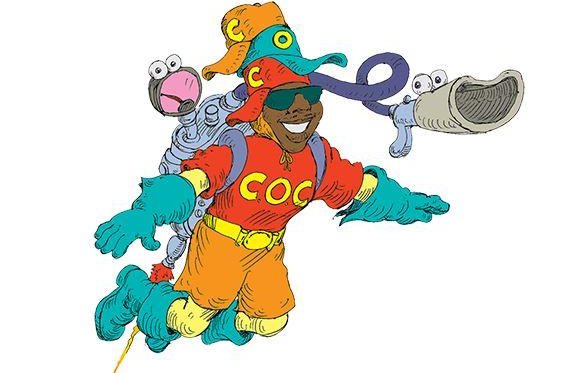Hip Hop Stroke is a three-hour multimedia intervention on strokes that includes animated cartoons and hip-hop music videos, video games and comic books. A research study found the program increased awareness of strokes among 3,070 minority New York City children in fourth, fifth and sixth grade. Image courtesy of
Hip Hop Stroke
March 22 (UPI) -- Using hip-hop music to teach school kids the symptoms of stroke and how to quickly react to them can save lives and prevent disabilities, according to a study of minority children.
In the study, 3,070 minority New York City children in fourth, fifth and sixth grade at 22 schools took part in Hip Hop Stroke, a three-hour multimedia intervention on strokes that encourages them to share their knowledge with their parents and other adults. The findings were published Thursday in the journal Stroke.
Participants watched animated cartoons and hip-hop music videos, played video games and read comic books on stroke education. Hip Hop Stroke is available for use by schools and other groups.
In the study, 24 percent of the kids were still "optimally prepared" to recognize stroke symptoms and quickly call 911 three months after the program concluded.
"If we can get fourth-graders to learn the symptoms and act on them, then we can get anybody to do the same thing," Dr. Olajide Williams, a researcher and chief of staff of neurology at Columbia University in New York, said in an American Heart Association press release.
Williams is also founder and president of Hip Hop Public Health, a nonprofit that uses hip-hop to call attention to stroke and other health issues.
"It's a very important study with impressive results," said Dr. Bruce Ovbiagele, chairman of neurology at the Medical University of South Carolina, who was not involved in the study. "It's pointing us in the right direction of what we should be doing to affect change and [encourage] the general public to call 911 and get patients to the hospital on time."
Stroke is the fifth-leading cause of death in the United States, with 130,000 people dying each year, according to the American Heart Association. In addition, it's the leading cause of long-term disability and the leading preventable cause of disability.
Because blocked blood vessels cut off blood flow to the brain, it's essential for patients to get medical care quickly. A clot-dissolving drug may prevent death and improve the chances of recovering within 3 1/2 hours of the stroke.
In the hip-hop presentation, participants are taught to recognize symptoms such as face drooping, arm weakness and speech difficulty, as well as the importance of calling 911.
The study compared stroke knowledge and preparedness among program participants with those not in the program. Right after the program, 57 percent had perfect scores compared to only 1 percent without the education.
Three months after the program, four children used the skills to call 911 for real-life stroke symptoms.
Also, parents of kids who went through the program became better prepared to recognize stroke symptoms -- the parents had 3 percent proficiency before the program, which increased to 20 percent immediately after among the 1,144 parents.
"The fact that this study targeted a group that is high-risk, using children, was extremely novel," said Ovbiagele. "African-Americans disproportionately suffer the burden of stroke."
And this program used material kids can relate to.
"We need to be more creative. We need innovative interventions that leverage all age groups," Williams said. "Most Americans get to the hospital too late for treatments that can potentially save you or your loved one from a life of disability. We have medications that can mitigate these effects, and yet we're only treating 7 percent of these patients. That's a devastating statistic."















